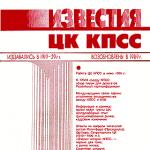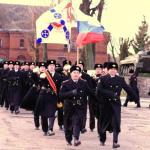The unrealized ending of the novel by A.S. Pushkin "Eugene Onegin. What is the ideological meaning of the finale of Eugene Onegin Why does the novel Eugene Onegin have an open ending
This peculiar end "without end", even more unconventional for the genre of the novel than was unconventional for dramatic work the ending of "Boris Godunov", not only embarrassed critics, but even Pushkin's closest literary friends. Since the "novel in verse" was not brought to the usual, so to speak, "natural" plot boundaries - the hero is "alive and not married", many of the poet's friends urged him to continue his work (see Pushkin's sketches of poetic answers dating back to 1835 to these suggestions). True, now we know that Pushkin himself began, apparently, immediately after he finished his novel, in the same Boldin autumn of 1830, to continue it: he began to sketch out the famous “tenth chapter”; but was forced to burn what was written due to its sharp political unreliability. However, we do not know how firmly Pushkin's intention to continue the novel was, nor how far he advanced the realization of this intention. However, the most striking example of this kind is the finale of "Eugene Onegin":
* She left. Worth Eugene,
* As if struck by thunder.
* In what a storm of sensations
* Now he is immersed in his heart!
* But the spurs suddenly rang out,
* And Tatyana's husband appeared,
* And here my hero,
* In a minute, evil for him,
* Reader, we will now leave,
* For a long time ... forever ....
As for the incompleteness in the romance of the fate of its main character, then, as we could just see, this is quite in the spirit of many, many Pushkin's finales; Together with that. it was this incompleteness that gave the poet the opportunity to impose the last and exceptional stroke in its ideological and artistic weight and expressiveness on that image-type " extra person", which was the first phenomenon in the person of Onegin. This was perfectly understood by Belinsky, who, in this respect, was able to approach Pushkin’s novel by no means from traditional positions:
"What is it? Where is the romance? What is his thought?’ And what kind of romance without end?” the critic asked and immediately answered: “We think that there are novels, the idea of which is precisely that, that they have no end, because in reality itself there are events without a resolution, existence without a goal, beings that are indefinite, incomprehensible to anyone, even to ourselves…” And further: “What happened to Onegin later? Did his passion resurrect him for a new, more humane suffering? Or did she kill all the strength of his soul, and his bleak longing turned into dead, cold apathy? - We don’t know, and what’s the point of knowing this when we know that the forces of this rich nature were left without application, life without meaning, and the romance without end? It is enough to know this in order not to want to know anything else ... "
The fact that Pushkin's novel in its present form is a completely complete and artistically complete work is most clearly evidenced by its compositional structure. Just as most of Pushkin's contemporaries did not feel the remarkable compositional organization of "Boris Godunov", many of them in "Eugene Onegin" were inclined to see a non-holistic artistic organism - "not an organic being, whose parts are necessary for each other" (review of the critic " Moscow Telegraph" about the seventh chapter of "Eugene Onegin"), but an almost random mixture, a mechanical conglomeration of disparate pictures from life noble society and lyrical reasoning and reflections of the poet. In this regard, one of the critics even directly noted that Pushkin's poetic novel can continue indefinitely and end at any chapter.
In fact, we saw that already by the beginning of Pushkin's work on "Eugene Onegin" in his creative mind, a "lengthy" "plan of the whole work" had formed. And we can say with confidence that during the entire very long period of Pushkin's work on the novel, this plan, while changing - and sometimes changing very significantly - in the details of its development, remained unchanged in its basic outlines.
In Pushkin's novel, dedicated to the depiction of the life of Russian society in its development, from this developing life itself flowed very abundant and varied - "motley" - material that the author could not have foreseen in advance in everything. But the poet never surrendered passively to the influx of life impressions, did not go with the flow of new material brought in, but, like a mature master, freely owned and disposed of it, embraced it with his “creative thought”, subordinated it as his main artistic intent, and that "plan form" - a thoughtful compositional drawing - in which this idea, again from the very beginning of work on it, was presented to him.
That this was exactly so is confirmed by the clarity of the architectural design, the harmony of the compositional lines, the proportionality of the parts, the harmonious correspondence of the beginning and end of the work, which, as we already know, constitute the features of Pushkin's compositions, which, of course, are not in Eugene Onegin. could arise by chance and independently of the creative will of the author, so to speak, by themselves.
The main images of the novel, with all the individual vitality of each of them, are so generalized, typified in nature that this allows Pushkin to build the plot of his work, which recreates the broadest picture of Pushkin's modernity, on the relationship between only four persons - two young men and two young girls . The rest, the faces included in the novel as not an everyday background, but its - to one degree or another - participants (there are also very few of them: Tatyana's mother and nanny, Zaretsky, Tatyana's general husband), have a purely episodic significance.
Equally characteristic of the socio-historical reality, recreated in Pushkin's novel, is the image of Tatyana. The final formula that determines her life path - to be “faithful to her conjugal duty for a century” - undoubtedly guided the wives of the Decembrists, who followed their husbands to hard labor in Siberia. A more general character is the image of an ordinary Olga in all respects. The inclusion of this image in the novel is undoubtedly dictated not only by the desire for this plot symmetry.
This peculiar ending "without end", even more unconventional for the genre of the novel than the ending of "Boris Godunov" was unconventional for a dramatic work, not only embarrassed not only critics, but even Pushkin's closest literary friends. Since the "novel in verse" was not brought to the usual, so to speak, "natural" plot boundaries - the hero is "alive and not married", many of the poet's friends urged him to continue his work (see Pushkin's sketches of poetic answers dating back to 1835 to these suggestions). True, now we know that Pushkin himself began, apparently, immediately after he finished his novel, in the same Boldin autumn of 1830, to continue it: he began to sketch out the famous “tenth chapter”; but was forced to burn what was written due to its sharp political unreliability. However, we do not know how firmly Pushkin's intention to continue the novel was, nor how far he advanced the realization of this intention. However, the most striking example of this kind is the finale of "Eugene Onegin": * She is gone. Eugene is standing, * As if struck by thunder. * What a storm of sensations * Now he is immersed in his heart! * But a sudden ringing of spurs rang out, * And Tatyana's husband appeared, * And here is my hero, * In a moment, evil for him, * Reader, we will now leave, * For a long time ... forever .... As for the incompleteness of the fate of its main character in the romance, then, as we could just see, this is quite in the spirit of many, many Pushkin's finales; Together with that. It was precisely this incompleteness that gave the poet the opportunity to impose the last and exceptional stroke in its ideological and artistic weight and expressiveness on that image-type of the “superfluous person”, which was the first phenomenon in the person of Onegin. This was perfectly understood by Belinsky, who, in this respect, was able to approach Pushkin’s novel by no means from traditional positions: “What is this? Where is the romance? What is his thought?’ And what kind of romance without end?” asked the critic and immediately answered: “We think that there are novels, the idea of which lies in the fact that they have no end, because in reality itself there are events without a denouement, existence without a goal, beings that are indefinite, incomprehensible to anyone, even to ourselves…” And further: “What happened to Onegin later? Did his passion resurrect him for a new, more humane suffering? Or did she kill all the strength of his soul, and his bleak longing turned into dead, cold apathy? - We don’t know, and what’s the point of knowing this when we know that the forces of this rich nature were left without application, life without meaning, and the romance without end? It is enough to know this in order not to want to know anything else ... ”The fact that Pushkin’s novel in its present form is a completely complete and artistically complete work is most clearly evidenced by its compositional structure. Just as most of Pushkin's contemporaries did not feel the remarkable compositional organization of "Boris Godunov", many of them in "Eugene Onegin" were inclined to see a non-holistic artistic organism - "not an organic being, whose parts are necessary for each other" (review of the critic " Moscow Telegraph" about the seventh chapter of "Eugene Onegin"), but an almost random mixture, a mechanical conglomeration of disparate pictures from the life of a noble society and the poet's lyrical reasoning and reflections. In this regard, one of the critics even directly noted that Pushkin's poetic novel can continue indefinitely and end at any chapter. In fact, we saw that already by the beginning of Pushkin's work on "Eugene Onegin" in his creative mind, a "lengthy" "plan of the whole work" had formed. And we can say with confidence that during the entire very long period of Pushkin's work on the novel, this plan, while changing - and sometimes changing very significantly - in the details of its development, remained unchanged in its basic outlines. In Pushkin's novel, dedicated to the depiction of the life of Russian society in its development, from this developing life itself flowed very abundant and varied - "motley" - material that the author could not have foreseen in advance in everything. But the poet never surrendered passively to the influx of life impressions, did not go with the flow of new material brought in, but, like a mature master, freely owned and disposed of it, embraced it with his “creative thought”, subordinated it both to his main artistic concept and to that “ the form of a plan "- a thoughtful compositional drawing - in which this idea, again from the very beginning of work on it, was presented to him. That this was exactly so is confirmed by the clarity of the architectural design, the harmony of the compositional lines, the proportionality of the parts, the harmonic correspondence between the beginning and the end of the work, which, as we already know, constitute the features of Pushkin's compositions, which, of course, do not exist in Eugene Onegin. could arise by chance and independently of the creative will of the author, so to speak, by themselves. The main images of the novel, with all the individual vitality of each of them, are so generalized, typified in nature that this allows Pushkin to build the plot of his work, which recreates the broadest picture of Pushkin's modernity, on the relationship between only four persons - two young men and two young girls . The rest, the faces included in the novel as not an everyday background, but its - to one degree or another - participants (there are also very few of them: Tatyana's mother and nanny, Zaretsky, Tatyana's general husband), have a purely episodic significance. Equally characteristic of the socio-historical reality, recreated in Pushkin's novel, is the image of Tatyana. The final formula that determines her life path - to be “faithful to her conjugal duty for a century” - undoubtedly guided the wives of the Decembrists, who followed their husbands to hard labor in Siberia. A more general character is the image of an ordinary Olga in all respects. The inclusion of this image in the novel is undoubtedly dictated not only by the desire for this plot symmetry.
what is the meaning of the open ending of the novel eugene onegin and got the best answer
Answer from Alexey Khoroshev[guru]
As you know, the denouement of Pushkin's novel in verse (or rather, its main plot outline, contained in eight chapters) is built on the principle of "anti-final"; it crosses out all literary expectations determined by the flow of the plot within the genre framework of the novel's narrative. The novel ends suddenly, unexpectedly for the reader and even, as if, for the author himself:
<...>And here is my hero
In a minute, evil for him,
Reader, we will now leave.
For a long time... forever. Behind him
Pretty we are one way
Wandered around the world. congratulations
Each other with the shore. Hooray!
Long ago (wouldn't it?) It's time!
According to the logic of a standard novel plot, the heroine’s declaration of love for the hero should have led either to their union or to dramatic actions that stop the normal course of their lives (death, leaving for a monastery, flight outside the “inhabited world”, outlined by the novel space, and etc.). But in Pushkin's novel, "nothing" follows Tatyana's decisive explanation and declaration of love for Onegin ("nothing" from the point of view of the predetermined literary scheme).
The finale of Onegin was created by the famous Boldinskaya in the autumn of 1830. Pushkin was suddenly locked up in Boldino, where he came to arrange his affairs before his marriage, cholera quarantines. On the eve of another decisive change in his life, he found himself imprisoned in forced seclusion, in a disturbing uncertainty about the fate of the bride, who remained in Moscow, and friends.
The subtext of the final stanza of "Eugene Onegin" refers to the picture of a friendly circle as the Last Supper, similar to the one that was painted in the message to V. L. Davydov and in one of the fragments of the tenth chapter. An indispensable component of this image is the reading by the poet of his poems, as a "sacred" text, affirming a new communion. In the tenth chapter, this role is played by "Noels" ("Pushkin read his noels"); in the final stanza of the eighth chapter, this role is given to the "first stanzas" of the novel, which the poet reads to his friends.
This friendly feast, the "celebration of life", was interrupted, many of its participants (including V. L. Davydov, exiled to Siberia) left it without finishing their glass. Their book of life (the "novel") remained unread, just as Pushkin's novel, the beginning of which was created before their eyes, remained unread for them. In memory of this interrupted feast reading, Pushkin now ends his novel unexpectedly, "suddenly" parting with his hero. Thus, Pushkin's novel acquires the symbolic role of the "book of life": its course and sudden break symbolically contained the fate of "those" who witnessed its beginning. This poetic idea lends a touch of "prophetic" meaning to the famous lines:
<...>And the distance of free romance
I'm through the magic crystal
Haven't made a clear distinction yet.
(That is, at that time the poet was still “unclear” about the meaning of divination / prophecy contained in his “book of fate”).
There was a certain compositional logic in the fact that Pushkin refused to include his "chronicle", conceived as the Tenth Chapter, in the composition of the novel. The heroes of the "chronicle" are invisibly present in the conclusion of "Eugene Onegin" - they are present in symbolically his "interrupted" ending and in the words of the author's farewell to his work.
"Eugene Onegin" ended at a turning point for Pushkin, on the eve of a dramatic change in his life. At this moment, he casts a retrospective look at an entire era of his life, the chronological framework of which was roughly outlined by the time he worked on the novel. The poet, as it were, is the last to leave the symbolic feast, parting, following his brothers in the communion feast, with the “celebration of life” - the era of the 1820s.
One of the most outstanding works Alexander Sergeevich Pushkin's "Eugene Onegin" has a rather curious and exciting ending, and leaves one question behind. If a further fate the heroine of Tatyana is obvious, then what is the future for the main character? This is a good subject for discussion, and not by accident, because the author deliberately used the "open ending" technique in the novel.
In the final part, Tatyana, at the insistence of her mother, marries an eminent prince, despite the fact that her feelings for Eugene never went away, even after he coolly rejected her pure girlish love. AT family life the girl gains peace of mind and self-confidence. A few years later, by chance, they meet at a ball in St. Petersburg, where Tatiana strikes Onegin with her coldness and inaccessibility. From a young provincial in love, she has turned into a proud and stately society lady, and he barely recognizes her.
On subsequent evenings, she hardly notices him and nothing betrays excitement in her. He languishes and suffers from her indifference and realizes that he loves her. The former young rake realizes the meaninglessness of carelessly lived years, and that he could be happy with Tanya, but it's too late. In desperation, he writes passionate confession letters to her, but receives no response. Unable to endure it any longer, he goes to Tatyana's house and finds her in tears reading his letters. He throws himself at her feet and begs to be with him, but Tatyana rejects him, albeit without malice. She suffers no less than Eugene, because she still loves him, but dignity and loyalty to her husband are above all for her. She leaves with a feeling of bitterness from the impossibility of changing everything, leaving him, amazed and devastated, having lost his last hope.
The novel makes you think about the responsibility of people for their actions, about what consequences seemingly innocent mistakes of youth can bring. The author shows that life is unpredictable and ironic when he swaps characters. Tatyana remains to live, as before, without love for her husband, but without dropping honor, but what will happen to the unfortunate Eugene, who has lost the meaning of life, the writer does not say. Perhaps because it does not matter, because what difference does it make what happens if in moral attitude is it over for him?
Option 2
In love work "Eugene Onegin" understandable ending. Tatyana does not want love affairs with Onegin. He finds himself in despair. It becomes clear to readers what the fate of the heroine will turn out to be, but it is impossible to predict what will happen to Eugene later. There are various speculations as to why this version of the ending came about.
On the one hand, in the reviews there were judgments that the critics' assessments did not allow the writer to complete the description of the main actor novel. Pushkin, as everyone knows, created chapters 9 and 10 of the work, they told about Onegin's trip and that he decided to enter the circle of the Decembrists. These texts explained extremely free-thinking inclinations, which censorship was not able to omit. On the other hand, almost all critics agree that the writer specifically did not want to extend the story of Onegin. There are likely different motives for this. Maybe the writer wanted to say with a clear ending that everything is now decided for Onegin. Love feelings for the main character became for him the only chance to be born again and live in full force, and Tatyana's rejection indicates Eugene's spiritual death, in this regard, it does not matter what kind of stories will be with him later, because in any case they will not fix anything .
Most likely, Tatyana's dismissal is not yet the end of Onegin's life, but the first steps of her next stage. Pushkin was a follower of the concept of variability life path. For example, at the end of the chapter, he reported that Lensky's lifestyle could have turned out differently, but then, the same rule could be applied to Onegin. He may actually become part of the Decembrists' entourage, since he could not stand the insignificant and useless lifestyle. He could have gone against social views when he carried out transformations in his own village. Such a course is real, but not mandatory, since Onegin is still a very proud person to defend social transformations. Main character has the opportunity, for example, to move to the Caucasus, as did almost all of his peers, who lost faith in reality. It may also happen that Onegin will again withdraw into himself and spend the rest of his life, in the image and likeness of his uncle, who "looked out the window and crushed flies." There may be other stories, because the image of the protagonist is endowed with different abilities.
As a result, the open ending shows people, the reader, an opportunity for an independent creative process: each of us personally imagines and conjectures what happened to Eugene Onegin, as the first readers of the novel could do.
Some interesting essays
- Composition based on the work of Viy Gogol
Perhaps the most famous mystical work of the great writer Nikolai Gogol, it was created by the inspiration of the author according to one of the legends of a folk character.
- The history of the creation of the story One day by Ivan Denisovich Solzhenitsyn
The first printed work of Alexander Solzhenitsyn was the story "One Day in the Life of Ivan Denisovich". It was published in the 11th issue of the magazine " New world» in 1962, more than 100 thousand copies
- The main characters of The Bronze Horseman
"The Bronze Horseman" - a poem by A.S. Pushkin. The protagonist of the work is a poor official Eugene. Eugene is in love with Parasha, a girl who lives on the other side of the Neva
- Characterization of Tybalt in Shakespeare's Romeo and Juliet essay
Tybalt is one of secondary characters world famous classical play William Shakespeare's tragedy Romeo and Juliet.
Once we went with my parents and with my brother for mushrooms. The weather was magnificent, the sun was shining, the birds were singing, and the grass was juicy and green. I was in a great mood and I wanted to run through the forest and collect the most mushrooms.






